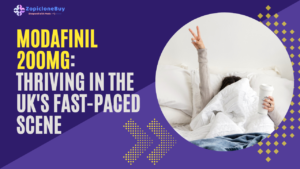Pandemic situations though rare, are not totally unheard of. The WHO defines a pandemic as the worldwide spread of a new disease. The immunity system takes time to build resistance around the body. This results in a sudden rapid spread of the body with an overall increase in the mortality rate. There are all 6 phases of a pandemic. The virus first starts with infecting the animal populations. Over time, it transmits to human beings. Owing to lack of awareness or knowledge about the situation, treatment gets delayed. It slowly starts spreading among the communities, after which it is transmitted to continents. When there is the transmission of the virus to more than two continents and at least one additional country, it is termed a pandemic.
A brief note on SARS -Covid Virus Pandemic
Sars-Covid 19 or Severe acute Respiratory Syndrome Coronavirus 2 is a highly contagious virus that is the successor to the Covid-1 virus that caused the death of around 770 people from 2002-2004. It has zootic origins with genetic similarity to that of bat-coronavirus. Research has proved that the virus has the potential to be airborne and transmit the infection through indirect contact with contaminated surfaces. Transmission of the Covid-19 virus occurs via respiratory droplets in the form of coughs and sneezes. It enters the human body through the ACE-2 receptors. Once it gets inside, it starts replicating and impairing the respiratory system, blood pressure, gastrointestinal tract, and cardiac function. The symptoms start with dry cough, tiredness, headache, with respiratory ailments like pneumonia. This increase in severity leads to respiratory failure and cardiac shock ending in multiple organ failures followed by death.
The pathophysiology Ivermectin and Hydroxychloroquine
Ivermectin and Hydroxychloroquine used to have two completely different pathophysiologies and purposes before proving their effectiveness against viral infection. Ivermectin is an anthelmintic medication that was initially introduced for the treatment of parasitic infections in animals. In the course of time, it was modified and approved for human use. Ivermectin is anthelmintic by nature. Anthelmintics are anti-parasitic medications used to treat both external and internal parasites in humans. They usually work by killing the virus or stunning it to ineffectiveness, after which it is removed from the body. Ivermectin has proved its effectiveness for several parasitic conditions like Onchocerciasis and Lymphatic filariasis, which is recognized by the WHO as essential medication for Onchocerciasis.
Hydroxychloroquine in UK is another WHO-declared essential medication that is known for its anti-malarial and DMARD properties. Hydroxychloroquine is a structural analog or superior version of the Quinine medication. It was developed for the treatment and prophylaxis of uncomplicated malaria cases but is currently equally popular for its anti-rheumatic properties. Hydroxychloroquine works by accumulating in the lysosomes of the malarial parasite. Its complex binding mechanism works in the treatment and limiting of the disease by preventing it from proteolysis hemoglobin. By accumulating in the human organelles, it raises their pH and produces inflammatory response and, to some extent, tumor necrosis properties.
What is their Role in Covid?
The sudden onset of a virus without any cure created chaos everywhere. Increasing mortality and uncontrolled acceleration of the situation made health experts search for readily available treatments. The goal was to search for symptomatic relief from other pre-existing medications and decrease their symptoms with mortality rate, respectively. With an increasing number of Covid complications, a few medications were elected for their of their label treatment of the virus. Ivermectin and Hydroxychloroquine were two such medications.
Studies found several ways in which Ivermectin proved useful for Covid positive patients in UK. Firstly, the binding of Ivermectin to the spike protein of the virus forms a shield around it. This prevents it from binding to the ACE-2 receptors and entering the body through them. Once inside the body, the virus depends on the nuclear import of proteins to strengthen its bond, after which it paralyzes the body’s defense mechanism. Ivermectin prevents the nuclear import of the proteins of the virus. Secondly, it enables immunomodulation of the host response by activating the neutrophils, increasing C-reactive protein and interleukin levels. Better functioning of the defense mechanism allows the body to fight the virus more effectively. The anti-inflammatory properties of Ivermectin further decrease the effects of the virus to a moderate extent resulting in symptomatic relief in a short period.
How does Hydroxychloroquine act against the Covid virus?
Hydroxychloroquine increases the endosomal PH of the virus that in turn inhibits its cell infusion. An increase in pH of the virus cell further prevents it from replication. This factor, in turn, regulates the spreading of viral infection in the body. Through interfering with the glycosylation of the ACE2 receptors, further damage control is obtained. ACE 2 receptors are proteins present on the cell surface of the human body that regulate the blood pressure, inflammation, and wound healing capacity of the body. Unfortunately, they also serve as a doorway for the Sars-Covid-12 virus, which binds to the receptors can enter the body. By preventing glycosylation of the receptors, the binding capacity of the virus is reduced. The effective anti-inflammatory properties of Hydroxychloroquine are additionally crucial in preventing auto-immune flare-ups and organ damage due to the virus. This becomes a life-saving factor, especially in severely affected patients.
Ivermectin vs. Hydroxychloroquine- Which one is better?
Unfortunately, no solid data is available regarding the competitive analysis of either medication. A comparative study was held to evaluate the superiority of one medication over the other. Out of the 181 covid patients enrolled for the study, only 116 participants actually were eligible, which is not a significant amount. Additionally, the overall results provided individual data but failed in making a suitable comparative conclusion. This was not the first case of unsatisfactory research findings. Previously, a lot of other trials have been conducted regarding the effectiveness of Ivermectin and Hydroxychloroquine on covid positive patients.
In a study conducted to evaluate the efficacy of Ivermectin in UK in Covid-19 treatment, 164 patients diagnosed with the Covid virus were divided into two groups. The first group received 12mg Ivermectin daily for three days, while the second group received a standard treatment protocol for 14 days. The study’s outcomes were based on mortality, length of a hospital visit, and need for mechanical ventilation by the patient. The results did not show any statistically significant verdict, but the graph tended to show reduced hospital stay in those given Ivermectin for three days.
In a randomized clinical trial regarding the efficacy of Ivermectin, 476 patients were randomized to receive 300ug/kg of the medication for five days compared to a placebo. The median time to resolution of symptoms was ten days in the Ivermectin group and 12 days in the placebo group. By 21st, 82% in the Ivermectin group and 78% in the placebo group recorded mostly reduced symptoms. Headache was observed by 52% in the Ivermectin group and 56% in the placebo group. Multiple organ failures occurred in 2 persons in each.
Similar studies were conducted regarding the efficacy of Hydroxychloroquine in Covid positive patients. In a randomized clinical trial, 476 adults covid positive patients were selected out of 510 patients. They were randomly assigned Hydroxychloroquine 400 mg twice daily for two doses followed by 200 mg twice daily for eight doses. Two hundred forty-two patients were given the Hydroxychloroquine, while the remaining 237 patients were administered a placebo. The death occurred in 25 patients of the Hydroxychloroquine groups and 25 of the placebo group at day 28 of randomization. Clinical status did not differ between the two groups on day 14. The findings did not support the use of Hydroxychloroquine for the treatment of COVID 19 in hospitalized patients.
Another study was conducted in the UK to evaluate the effectiveness of Hydroxychloroquine for the prevention of Covid-19 instead of treating the viral infection. A prespecified observational, population-based cohort study was conducted using national primary care data with linked death registration of an online platform. Adults aged 18 years or older were included in this study. Cox regression analysis was used to estimate the association between ongoing routine Hydroxychloroquine use before the Covid outbreak in comparison to nonusers of Hydroxychloroquine. A total of 637 people with arthritic or erythematous conditions were included. The results did not find any significant difference in mortality in people using Hydroxychloroquine treatment.
What went Wrong?
None of these studies had complete information or a methodology to their research methods. In addition to their small sample size that provided unsatisfactory information, the doses and schedules of the medication were different in different trials. Sometimes additional medications were used that made it difficult to determine the efficacy of the drug. Further, the trials were all open labels instead of being blinded, creating a biased view of the participants and investigators. The UK-based trials were less of a trial than a research-based on predetermined data acquired for different purposes from patients. Either way, the trials proved that much more significant research was required to reach conclusive results regarding the comparison of either of these two medications.
Role of WHO
The FDA has not approved either Ivermectin or Hydroxychloroquine in Covid positive patients. A number of factors led to FDA and the WHOs regulation against these medications. Firstly, the pandemic fears led to indiscriminate use and hoarding of the medications. This led to their shortage and toxic effects caused by misuse or unregulated use of the medications. A number of people became critical or died after consuming the veterinary form of Ivermectin that is strictly not for human use. Additionally, the WHO has an issue with the amount of medication required for successful treatment against the virus. According to the WHO, the excess dose though treating the virus successfully can lead to overdose symptoms worse than the antiviral symptoms. The WHO has approved the use of Ivermectin for Covid patients only in clinical trials. It has discontinued hydroxychloroquine use for COVID-19 treatment.
What if they are combined together?
Ivermectin and Hydroxychloroquine interact with other drugs at times resulting in mild to moderate side effects. But they do not adversely interact with each other. Using them together or combining them together can lead them to act in a synergistic manner. Hydroxychloroquine can present as a first-level barrier to the virus by preventing its entry into the cell. Ivermectin could prevent its replication inside the body leading to reduced symptoms with strengthened effects of Hydroxychloroquine. Their combination could prove to be a boon for serious cases of Covid-19 patients. But as of now, this is only a hypothetical situation. No in-vitro or in vivo studies have been conducted as yet regarding the combination of the medications.
Final thoughts
Based on the mechanism of action, clinical findings, and overall conditions, we can say that Ivermectin is slightly more effective than Hydroxychloroquine for use in Covid conditions. There are 2-3 reasons for coming to a conclusion. Firstly, Clinical trials, though flawed, showed some improvement in Ivermectin users. The results for Hydroxychloroquine were always considered equivalent to that of placebo. Secondly, the side-effects associated with Ivermectin are less serious than that of Hydroxychloroquine. The overall tolerance of Ivermectin is proved to be better than Hydroxychloroquine. Lastly, if we look at the WHO verdict of either medication, based on a number of factors, it has given its approval to Ivermectin for clinical trials but completely removed Hydroxychloroquine from the Covid medication list. All of these results prove that even though minimal, Ivermectin has slightly more efficacy for Covid virus treatment than Hydroxychloroquine.
Conclusion
Despite FDA and WHO disapproval, many places are still using the medications for Covid prophylaxis because of a lack of better options. The unsatisfactory results are partly due to the infection’s sensitive nature, making participants unwilling to volunteer for the experiment. For successful eradication of Covid, social distancing and sanitization are as important as the medication. More trials need to be conducted to reach a satisfactory conclusion and spread awareness regarding the situation.
References





